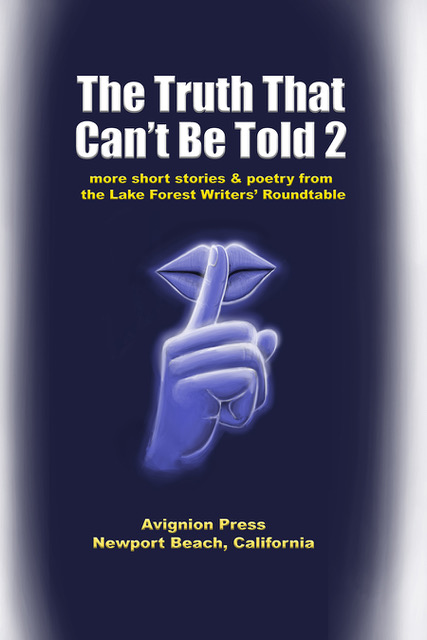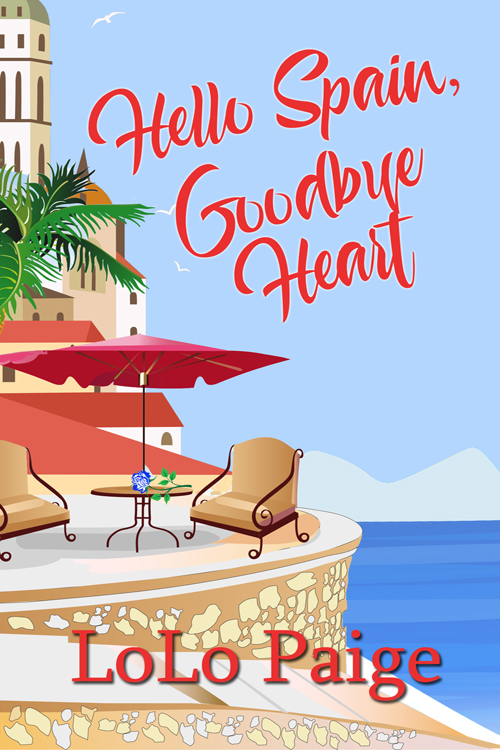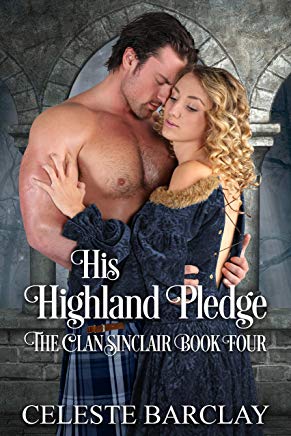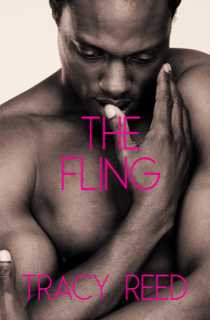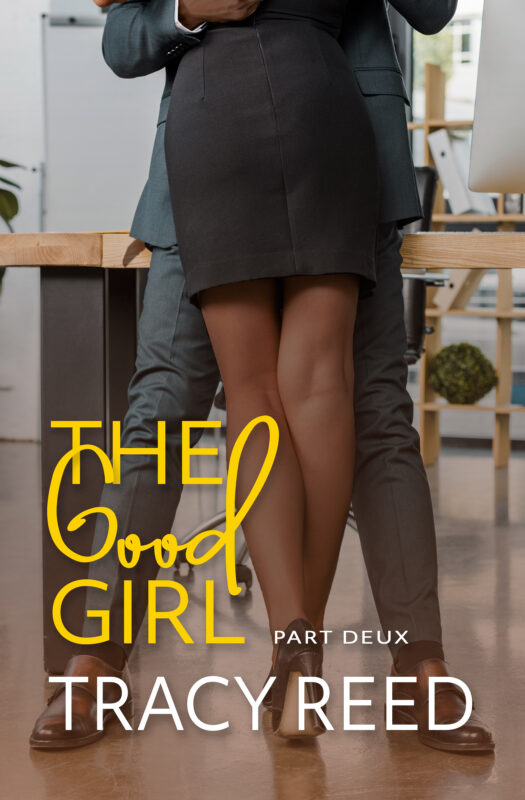e-maginings: That Is My Favorite Word
July 16, 2011 by A Slice of Orange in category Archives tagged as e-maginings, revision |
| Deception coming from Amber Allure Aug. 2011 Linda McLaughlin aka Lyndi Lamont |
Every writer has a favorite word. You know, the one that creeps into your writing, over and over again, when you’re not paying attention.
In my case, the word is “that”. Every time I have to submit a manuscript I try to remember to do a global search for the word “that” and cut as many as possible. If I don’t, my editor will point out how much I’ve overused the word. You’d think “that” would be a fairly invisible word, like “the” but it isn’t. Not quite anyway, another word I have to watch out for, especially when I’m writing a historical with British characters.
For some writers, the favorite word is the generally useless “very”. Even if it’s not your favorite word, it’s a good one to search out and eliminate wherever possible.
My former writing partner, Anne Farrell, and I are revising our old Precious Gem romance for self-publishing as an e-book. It has been thirteen years since it was released, way back in the last century. So we’re updating the manuscript and looking to revise and tighten it as we go, including cutting out as many that’s as possible.
So what’s your favorite word?
Linda Mac
1 0 Read moreHeck Yeah! Raising Creative Cain (and Abel)
July 15, 2011 by A Slice of Orange in category Archives tagged as creative children, mentoring, parenting It’s not easy being the only normal person in a house full of creative folks, just ask my husband.
It’s not easy being the only normal person in a house full of creative folks, just ask my husband.
A high school football player who grew up to be a superior court judge, he married me when I was a corporate babe with a regular paycheck and my own benefits. When I turned full time fiction author he was proud, albeit confused. All those years on the corporate ladder, an MBA and I suddenly I wanted to write stories about made up people, beat myself up when I was rejected and spend sleepless nights wondering if I had what it really takes even after publishing 23 books? I made him crazy.
When I bore him two handsome sons who preferred ballet to baseball, he had to take a full-blown time out. Not only did he have to deal with his own momentary disappointment that his sons would be wearing jock straps under tights instead of football uniforms, he had to prepare himself for parenting challenges that were a little more complicated than the shake-it-off-suck-it-up variety.
Thankfully, he had already watched me go through ‘creative’ growing pains. But I was an adult, able to analyze my own journey as I went from a corporate to creative career. Children were a different matter all together – especially boy children.
Girls can become divas and everyone swoons, yet for boys who choose to sing, dance and act, their formative years can be tough. As they grow older, the boy who can kick a field goal is revered over the boy who can high kick. It is up to parents to help their children navigate the taut rope that runs between nurturing a truly talented kid and putting on blinders regarding the impact their creative tendency might have on their overall maturity.
Now that our children are in their twenties and pursuing their chosen professions, I can look back and pick out a few key decisions that helped us raise well-adjusted young men who are constructive as well as artistic.
BE AWARE
Watch for signs that a child’s creativity is becoming obsessive or a source of ridicule at school. When our youngest joined the girls’ dance team to meet a PE requirement we had an honest conversation about the social fall-out. Luckily, he was a self-assured kid who handled it well and overcame the negatives by involving himself in journalism, science and other disciplines that created ‘cross-cultural’ friendships at school. He also never lacked for a date since he was the only boy on the team. According to him, this was a huge benefit.
BE CHOOSY
We did not pour money into dance, voice and acting classes (no matter how much they begged). Instead, we made sure that the cost/benefit was in line before we committed to any instruction. We never paid the fees to have our kids in the chorus of a huge production at the local theatre just so they could appear on stage. Instead, we found out what they would be taught. If they were going to be in the chorus but had the opportunity to have a true learning experience (sets, costuming, acting instruction) then our money was well-spent. The point of classes is always to move them forward, not just showcase a cute kid.
BE HONEST
As our children grew in their performance skills, we made a conscious choice to be realistic, objective and honest about their abilities. We did not gush over our children (even when we wanted to). On the other hand, we did not criticize and beat them up for being less than perfect on stage. We gave praise when it was earned and navigated criticism with questions and comments that led them to self-examination. We enlisted the help of their directors and coaches. The one thing we praised consistently was effort. Getting on a stage, sharing your writing or singing for a crowd is never easy. Any person – young or old – who publicly unveils their creativity deserves praise for courage alone. Yet, to consistently praise or belittle a young talent leads to the inability to view themselves objectively and may keep them from finding their true voice. We tried to find the correct ‘notes’ for praise and criticism for each performance.
Finally, we pointed out that the real world is full of stars. Honesty as children grow into an artistic career will help them deal with both rejection and acceptance graciously. It will also help them decide if they are willing fight the battles inherent in such professions or settle for less than stardom.
BE PRACTICAL
Both our boys wanted to be in theatre when they were young. When they hit college their paths diverged: the eldest found his passion was film and our younger son became a playwright. At this point, our job was to help them analyze the reality of their career choices. We talked about salaries, cost of living, family obligations should they marry and career stability. These conversations are ongoing and important in terms of creating a foundation for living off the stage.
By the end of their college careers, the youngest one was already a published playwright and, this year, he was a finalist in the O’Neill Awards competition. Our oldest found he had a keen eye for movie production and marketing and now runs his own talent management firm and is producing his first movie. They both are still working in industries they love, just not in the capacity they envisioned as children.
So, heck yeah! Raise a little creative Cain or Abel. Just make sure he or she is able to handle the pressures, challenges, heartaches and, yes, triumphs that come with choosing a creative career.
(l) Eric, playwright now serving in the Peace Corps in Albania. (r) Alex, a talent manager and producer.
0 0 Read moreBetween the Lines with Debra Mullins & Debra Holland
July 13, 2011 by Marianne H. Donley in category Archives tagged as Debra Mullins, Dr. Debra Holland, Golden HeartTwo Debras, Two Golden Hearts: Two very different paths to publishing

Debra Mullins is the award-winning author of over a dozen historical romances from pirates to cowboys to Regency England to the Victorian period. Born and raised in the New York area, she moved west as an adult and loves old swashbuckler movies, Star Trek and cats.
You are a previous finalist of the Golden Heart award for unpublished authors. How did that recognition set the course for your career as an author?
Being a finalist gave me a great way to approach editors to pitch my manuscript. I was a finalist in 1996, pitched my book to an editor at RWA in July 1997 and had an offer in hand by January 1998.
You sold several books without an agent at the beginning. Would you do it again? Why or why not?
At the time, I had decided it would be easier to find an editor than an agent. Agents might love your work but turn you down for representation because they are unsure if they can sell it. Editors can buy work if they like it. So yes, I would do it again, though I have been agented consistently for the past 12 years or so. As a first sale author, you have a limited amount of say in what can be changed in a contract because you have no sales numbers to back up your requests. As an established author, the game changes and there is more than can be negotiated, so I prefer having an agent at this stage in my career.
What attracted you to Regency Historical fiction? Will you / Have you ever tried your hand at any other subgenre? Would you like to sometime?
My first book was a pirate adventure, my next two were Westerns. At that point Westerns were dying, so my editor requested I switch to England or Scotland. I’ve always enjoyed Regency romances, so that was the time period I picked. My current series, however, is Victorian, and I am also contracted for contemporary paranormal trilogy for Tor.
Can you describe your writing process—plot device first? or character first?
I am without a doubt a character writer. I start with characters and the internal conflict and theme, then have to find stuff for my characters to do for 300-plus pages (plot).
How do you develop a character arc for your hero/heroine?
I usually know what kind of internal conflict they have and where they need to end up, then work from there. A lot of what I do is gut instinct. If it feels right, it goes in, everything from the character’s name to his/her deepest internal issues.
What do you do to keep your ideas fresh and unique?
Keep up with current events. Technology may be changing, but people are essentially the same all through history. People today care about the same things people in past centuries cared about: survival, family, love, respect, etc. You can make that work in any sub-genre, and it resonates with the reader.
How did you develop your writing discipline? What keeps you making deadlines when you have a job and family?
 |
|
Debra’s Latest, Too Wicked to Love is available now.
|
Necessity. In order to meet my contractual obligations, I have to schedule things. I put my kids and day job first, then my writing. It has to be that way so I can keep my household afloat. This means I don’t have much of a social life outside of the writing community, which is probably why I met my husband at work.
I would say get feedback on your work, but don’t try and incorporate every suggestion given to you, and don’t ask twenty people when three will do. This is something that I see time and time again. Beginning writers get advice from too many people, then try and apply every suggestion. The result is a book that has lost its spark and doesn’t sound like yours anymore. Take the feedback and try to drill down to the underlying meaning. Example: Let’s say several different people tell you your hero shouldn’t be a prince because he is coming across as too wimpy, that he should be an FBI agent or an assassin or a vampire. The real feedback here is not that your hero has the wrong job, but that he is coming across as too weak. Your beta readers can probably point out areas that made them feel this way, and by making the hero stronger, you resolve the problem while still keeping your prince.
Debra Holland wears several hats when it comes to writing. As a psychotherapist, she writes nonfiction books. The Essential Guide to Grief and Grieving is her first nonfiction book. Debra also writes fiction–Historical Western Romance, Contemporary Romance, Fantasy Romance, and Science Fiction. She currently has her award winning Historical Western Romance Series, The Montana Sky Series, on Kindle.
Debra publishes all her work under her own name. She lives in Southern California, with two dogs, two cats, and a boyfriend. She’s a second degree blackbelt and teaches martial arts. She also is a corporate crisis/grief counselor.
You are a former winner of the Golden Heart award for unpublished authors. Can you tell us a little bit about that experience?
I owe it all to the feedback I received from the Orange Rose Contest that year–2001. I revised the beginning of Wild Montana Sky because I had two judges tell me the hero and heroine met too late. In November, I entered it in the Golden Heart contest, and NEVER THOUGHT OF IT AGAIN! I didn’t know when calls went out–it never crossed my mind that I would final. The call was the BIGGEST surprise ever! I think I screamed because my boyfriend came running to see what was going on. He wasn’t sure if it was a happy scream or a bad scream.
Carol Prescott told me that being a GH finalist was like being on the Prom Court in high school. And she was right. It was my first conference, New Orleans, and I was also giving a workshop, “Understanding Men.” I had a BLAST. The friendships you can make with the other GH finalists are priceless. I’m especially close with the GH finalists from 2003, but that’s another book and another story.
I had several other finalists tell me they were not going to prepare an acceptance speech because they didn’t want to “jinx” winning. Since I’m a believer in positive, not negative, thinking, a few hours before the ceremony, I decided I’d better put something together. I was ironing my gown, thinking about what I might say, when I had this strong feeling sweep over me that I was going to win. I stopped ironing and went looking for a piece of paper, saying to myself, “I WILL be giving this speech. I’d better write everyone’s names down to thank so I don’t forget anyone.”
So many people told me that selling was the next step to winning, but it wasn’t for me.
Your book, however, languished unpublished for a decade due to marketing concerns for the genre you wrote in (i.e. Sweet Western). What gave you the impetus to self-publish?
By the time I’d finished the Wild Montana Sky (WMS) the historical market, especially Westerns, had tanked. Winning the GH led me to my first agent, and he couldn’t sell the book. Neither could the second, even though the historical market came back. The market is for sexy, not “sweet” books, that aren’t inspirationals. I was reluctant to sell to a small press because I didn’t like the covers on most small press books. (That has changed a lot in this last year or so.) I wrote another book in the Montana Sky series, Starry Montana Sky (SMS), which took second place in the Orange Rose contest.
In the meantime, I switched to writing fantasy, then, in the last couple of years, focused on nonfiction. While I was in “deadline hell,†writing The Essential Guide to Grief and Grieving, a couple of my friends from the Wet Noodle Posse (GH finalists 2003) began publishing their backlist and unsold books on Kindle, Nook, and Smashwords and were doing very well. When I saw their success, I decided to self-publish WMS and SMS, but had to wait until I’d turned the grief book in. Because of my friends, I knew what to do (and what not to do.) We are sharing everything we know and learn about self-publishing with each other.
Can you describe the steps you took to publish the books in ebook form?
I’d had the books edited years ago, but did another read through of both. I went to the Bowker site to buy ISBN numbers. (You don’t need them for Kindle or Nook, but you do for Smashwords, so you might as well do it). My friends assured me that converting to ebook formatting might be time-consuming and tedious, but doable. Just follow the steps in the Smashwords guidebook. Not for me. I got stuck early on. I contacted one of the formatters suggested by Smashwords and paid him the outrageous sum of $20.00 per book. (Couldn’t believe he didn’t charge more. Would have paid $100 not to have to do it myself! ) Once he was finished, I uploaded the books on the Kindle site myself, as well as the others. All the sites are all similar. If I can do it, anyone can. Each took about 15 minutes, but a less tech challenged person could probably do it faster.
Who designed those lovely covers? What was that process like?
Delle Jacobs, one of my Wet Noodle Posse friends, and the first of us to self-publish her books. Delle won numerous Golden Hearts, but could never sell to New York, although she did sell to some small presses. Now she has her rights back. She’s doing VERY well.
I’ve looked at covers for years, trying to figure out what I’d want on my covers if the books ever sold. (Not that I’d have any say in the matter.) I never found one. Then, a couple of weeks before publishing, while looking through a catalogue of science fiction and fantasy books, I saw a cover for a fantasy novel, and thought–this is what I want–clouds opening up to the sky. I showed the cover to Delle, then described a big white house, a rainbow in the sky, and the couple looking at the rainbow. For SMS, I wanted a night sky, stars, a moon, a horse, and a smaller house. She did a marvelous job.
Now a question about pricing. You had this finished product in your hands… how did you go about deciding how to price them and how was that a factor in the success of the books?
I read a couple of blogs, but mostly followed Delle’s advice. She’s had fantastic success at selling a book or two at an introductory price of .99, then having readers go back and buy the rest at higher prices.
Self-publishing percentages are 35% for books priced below 2.99 and 70% between 2.99 and 9.99. Obviously, I make way more money on Starry at 2.99. However, I’m an unknown author. Why should people take a risk on my book? That’s why WMS is .99. However, if you’re already published and have a following, I’d suggest 2.99. WMS is outselling SMS at about 4 or 5 to 1. Because of the low price, WMS has also made some of the Amazon top 100 lists, both Historical and Historical Romance. (Making the list was a wonderful surprise!)
In your opinion, what is the single most effective marketing tool you used to promote your books?
I actually haven’t promoted it that much, just posted it on Facebook and Twitter. Just this last week, I’ve done a few blogs. I’ve had friends post on Facebook and Tweet, too. I have more blogs lined up. Reviewers, too.
One thing we can all do for each other is post 5 star reviews on Amazon, Barnes & Noble, Smashwords, whichever you buy your books from. Positive reviews make a big difference to any book, but especially self-published ones. For each review, my sales have risen a little to another level. I must confess that I’ve never posted a review until the last couple of months, but now I do every time I read a book I like.
And last but not least (I save this question for everyone!) What is the most important piece of advice you could share with an unpublished author?
 |
| For more information, visit her website: www.drdebraholland.com |
Don’t give up! Trust that there is a publishing path for you, although you don’t know what it will look like or how (or when) it will come. Keep honing your craft. Keep writing.
Not selling Wild Montana Sky was very discouraging. It won the GH TEN years ago! Those first rejections hurt. Eventually, it happened enough that I shrugged them off when I got them. Now I’m SO glad I didn’t sell the books before. I guess there was a different plan for them, and I’m so grateful!
Interviewer’s Note: Wild Montana Sky has sold 2,100 copies in 7 ½ weeks.
Interviews conducted by Brenna Aubrey
Brenna is an aspiring author of Historical and Fantasy Romance. When not dreaming up people and worlds and writing them down, she is also a mom, wife, teacher, avid reader, a French-speaking Francophile, and lover of nature and beautiful sunsets.
A Gutsy Tale
July 5, 2011 by Marianne H. Donley in category Archives tagged as Member At Large, Mona Karel, Monica Stonerby Monica Stoner, Member at Large
This is a self indulgent blog, about my life this last month. It has little to do with writing but a lot to do with surviving life.
I’ve always found it easier to deal with a situation if I’m as informed as possible, so I have spent time researching the Whipple surgical procedure – the history, the odds of success, the improvements in survival. I’ve learned as much as possible about roadblocks to recovery and about potential drawbacks of this specific procedure as well as any surgery. To be well informed is to be ready for most any eventuality.
Imagine, though, how the neighborhood of the digestive system would feel about having a portion of their community removed without warning. Would it go something like:
“Man, what hit us last night? I don’t remember any kind of party, do you Harry? Harry? Where’s Harry. And – Bob? What are you doing over here, you’re supposed to be over on the other loop.â€
“Yeah, and it looks like someone took a hunk out of the Pancreas. What went on here last night, some sort of rave?â€
“Hey, that pushy guy is gone, the one who was squatting at the end of the duct and kept encroaching on everyone’s property.â€
“Yeah, you’re right. Anyone know what happened to him?â€
“It’s like there was a riot or something and they cleaned out part of the neighborhood. Man, I’m hungry. Any chance we could get some food down here?â€
Tom asked for his brother the day before the surgery and at midnight I met him at the Albuquerque airport. Pre surgery was like a tag team comedy routine, then we went to wait. And wait. Seven plus hours all told before the surgeon told us he was happy with his part of the procedure but warned us this was just the first step.
We’ve had two steps forward and one step back, often those steps are shuffling baby steps. When we thought we’d beaten the odds he ended up back in ICU, having aspirated bile and at risk of pneumonia. I’ve gotten to know my quirky brother in law, who was part of a special unit in VietNam, and has the stories to share. I met a nurse who came from Iran when she was ten and the shelling got so bad in her village, it wasn’t safe for her to live there any longer. So many people, so many stories. For someone who chose to live far out and away from people it’s been an experience.
Thanks for listening.
Writing as Mona Karel, Monica Stoner’s first book, MY KILLER MY LOVE, was released on May 25, 2011 from Black Opal Books.
3 0 Read moreJuly Submissions — Fireworks, Fairies and Superheroes
July 1, 2011 by A Slice of Orange in category Archives tagged as Calls for Submission, Louisa Bacio
Affiliate Links
A Slice of Orange is an affiliate with some of the booksellers listed on this website, including Barnes & Nobel, Books A Million, iBooks, Kobo, and Smashwords. This means A Slice of Orange may earn a small advertising fee from sales made through the links used on this website. There are reminders of these affiliate links on the pages for individual books.
Search A Slice of Orange
Find a Column
Archives
Featured Books
THE TRUTH THAT CAN’T BE TOLD BOOK 2
Unrequited love, quiet shame, guttural fear are the truths we hide from the world…often from those we love the most.
More info →HELLO SPAIN, GOODBYE HEART
Dayna hopes for a second chance at love . . . but . . .he wears a wedding band.
More info →THE FLING
Every woman is beautiful. Sometimes it just takes the right man to show you just how beautiful you are.
More info →THE GOOD GIRL PART DEUX
Can you really have the fairy tale and the dream job?
More info →Newsletter
Contributing Authors
Search A Slice of Orange
Find a Column
Archives
Authors in the Bookstore
- A. E. Decker
- A. J. Scudiere
- A.J. Sidransky
- Abby Collette
- Alanna Lucus
- Albert Marrin
- Alice Duncan
- Alina K. Field
- Alison Green Myers
- Andi Lawrencovna
- Andrew C Raiford
- Angela Pryce
- Aviva Vaughn
- Barbara Ankrum
- Bethlehem Writers Group, LLC
- Carol L. Wright
- Celeste Barclay
- Christina Alexandra
- Christopher D. Ochs
- Claire Davon
- Claire Naden
- Courtnee Turner Hoyle
- Courtney Annicchiarico
- D. Lieber
- Daniel V. Meier Jr.
- Debra Dixon
- Debra H. Goldstein
- Debra Holland
- Dee Ann Palmer
- Denise M. Colby
- Diane Benefiel
- Diane Sismour
- Dianna Sinovic
- DT Krippene
- E.B. Dawson
- Emilie Dallaire
- Emily Brightwell
- Emily PW Murphy
- Fae Rowen
- Faith L. Justice
- Frances Amati
- Geralyn Corcillo
- Glynnis Campbell
- Greg Jolley
- H. O. Charles
- Jaclyn Roché
- Jacqueline Diamond
- Janet Lynn and Will Zeilinger
- Jaya Mehta
- Jeff Baird
- Jenna Barwin
- Jenne Kern
- Jennifer D. Bokal
- Jennifer Lyon
- Jerome W. McFadden
- Jill Piscitello
- Jina Bacarr
- Jo A. Hiestand
- Jodi Bogert
- Jolina Petersheim
- Jonathan Maberry
- Joy Allyson
- Judy Duarte
- Justin Murphy
- Justine Davis
- Kat Martin
- Kidd Wadsworth
- Kitty Bucholtz
- Kristy Tate
- Larry Deibert
- Larry Hamilton
- Laura Drake
- Laurie Stevens
- Leslie Knowles
- Li-Ying Lundquist
- Linda Carroll-Bradd
- Linda Lappin
- Linda McLaughlin
- Linda O. Johnston
- Lisa Preston
- Lolo Paige
- Loran Holt
- Lynette M. Burrows
- Lyssa Kay Adams
- Madeline Ash
- Margarita Engle
- Marguerite Quantaine
- Marianne H. Donley
- Mary Castillo
- Maureen Klovers
- Megan Haskell
- Melanie Waterbury
- Melisa Rivero
- Melissa Chambers
- Melodie Winawer
- Meriam Wilhelm
- Mikel J. Wilson
- Mindy Neff
- Monica McCabe
- Nancy Brashear
- Neetu Malik
- Nikki Prince
- Once Upon Anthologies
- Paula Gail Benson
- Penny Reid
- Peter Barbour
- Priscilla Oliveras
- R. H. Kohno
- Rachel Hailey
- Ralph Hieb
- Ramcy Diek
- Ransom Stephens
- Rebecca Forster
- Renae Wrich
- Roxy Matthews
- Ryder Hunte Clancy
- Sally Paradysz
- Sheila Colón-Bagley
- Simone de Muñoz
- Sophie Barnes
- Susan Kaye Quinn
- Susan Lynn Meyer
- Susan Squires
- T. D. Fox
- Tara C. Allred
- Tara Lain
- Tari Lynn Jewett
- Terri Osburn
- Tracy Reed
- Vera Jane Cook
- Vicki Crum
- Writing Something Romantic
Affiliate Links
A Slice of Orange is an affiliate with some of the booksellers listed on this website, including Barnes & Nobel, Books A Million, iBooks, Kobo, and Smashwords. This means A Slice of Orange may earn a small advertising fee from sales made through the links used on this website. There are reminders of these affiliate links on the pages for individual books.



